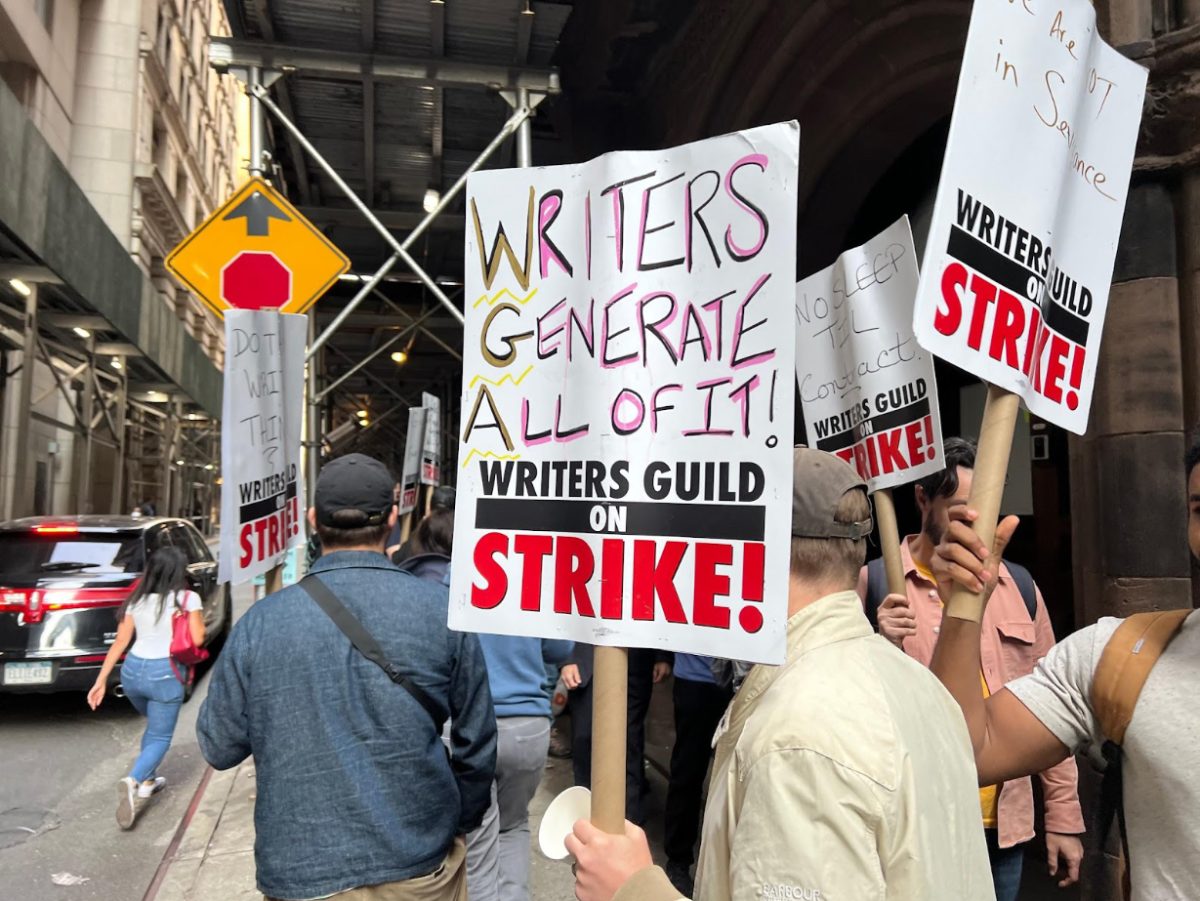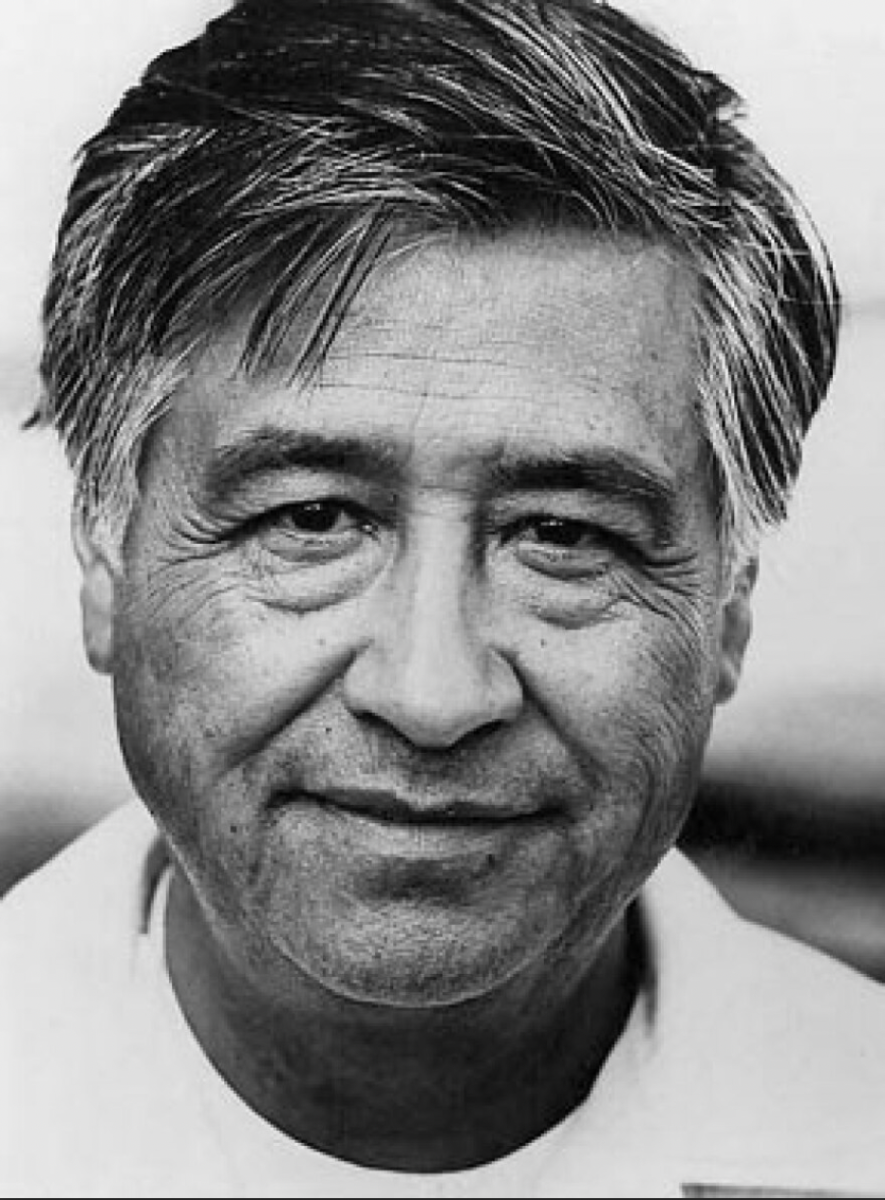We’ve all seen some form of television media before, whether it be a film, or a tv show. But a lot of us don’t know what goes behind the scenes, the years and months that go into the scripts, the filming, the memorization of lines. The writer’s strike gives us a glimpse into these behind the scenes, what life is like for writers and actors in the Hollywood industry. However, as the strike continues, we have to wonder…what could this mean for the future of screenwriters and actors?
Under the Writers Guild of America (WGA), over 11,000 Hollywood writers went on strike on May 2, 2023 after six weeks of negotiating with the Alliance of Motion Picture and Television (an association that represents large production companies such as NBC Universal, Paramount, Sony, Netflix, Disney, and Apple) failed.
A few months later, on July 14, over 100,000 actors under the Screen Actors Guild (SAG) and the American Federation of Television and Radio Artists went on strike.
The strike officially reached its 100 day mark on August 9th, and writers and actors’ demands still have not been met. The main premise of their demands is higher pay, but they are also demanding fairer deals and contracts, regulations regarding the use of AI technology, and increases in their health funds and pension plans.
Actor Jermaine Fowler, who is currently on strike, says he is striking because “[he] supports [his] union and [he] believes that writers should be fairly compensated for their work. [He has been] writing more stand-up comedy ever since the strike and [he understands] the work that goes into writing these kinds of things; it takes a lot of time and effort.”
WGA negotiators and representatives from the Alliance of Motion Picture and Television (AMPTP) met last month in August to attempt to reach a fair deal. However, according to the WGA, no agreement was reached. The AMPTP only offered to discuss the use of AI and a few minimums specific to writer television. It is not yet clear when the WGA and the AMPTP will reach an agreed upon deal.
As most writers and actors continue braving the picket lines, this gives newer and less experienced writers/actors the opportunity to work in the industry. But do they really want to? One aspiring screenwriter, Izzy Lopez ’26 says,
“I think I’ve gotten a clearer view of the lack of the benefits that screenwriters receive despite the millions that their movies make. Despite that, I still wanna be a writer in the industry more, because I feel that this strike is really going to better working conditions because of all of the momentum it’s gained.” Aspiring actor Erica Andres ‘26, agrees with Izzy’s statement,
“I think this strike doesn’t make me want to be in the industry any less, but it is certainly an eye opener. I mean, I knew that not every actor was famous obviously and some actors got paid more than others, but I didn’t know that it had gotten that bad. I do hope that the CEOs of these big companies decide to be decent and start paying their actors and writers who don’t have “big names” liveable wages.”
To survive during the strike, writers and actors have picked up “survival jobs,” as Brandi Nicole, (a TV writer) calls it. Survival jobs are jobs such as working at a grocery store, retail store, working as a server…anything they can do to make ends meet. Other writers have taken the strike as an opportunity to work on different creative projects.
Many television fans have been siding with the writers and actors during the strike. According to a survey done by Horizon Media, 506 out of 600 people sided with the writers/actors, while 54 people sided with the network studios. Along with that, the survey also found that television fans were willing to wait until the strike’s end for their favorite shows or movies to return. While they wait, most people have said that they will rewatch old shows, find new ones, or spend less time watching television media.
If you would like to support your fellow writers during the strike, a few things that you could do are: supporting the union on social media, donating to the Entertainment Community Fund, and joining writers on the picket line.






